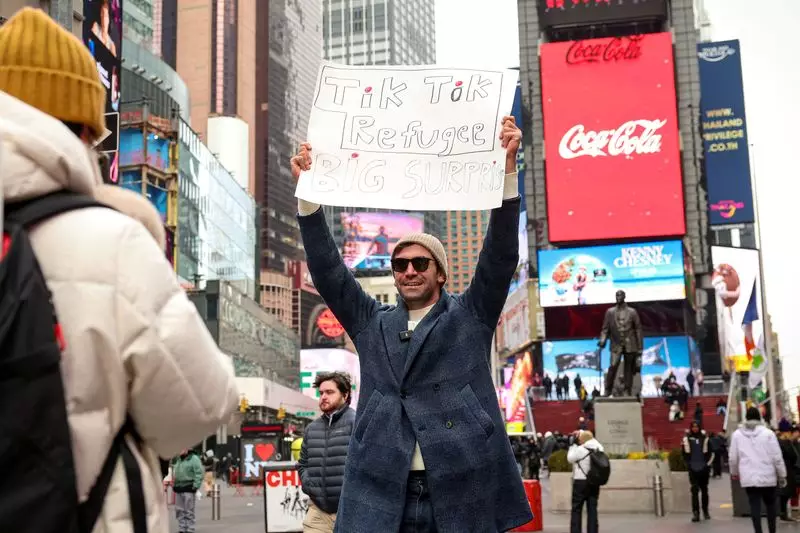TikTok has become a cultural phenomenon in the United States, winning the hearts of nearly 170 million users. Despite its success, the app now faces an existential crisis following fears of a federal ban that could disrupt access to the platform. This situation stems from concerns about data security and the influence of its China-based parent company, ByteDance, prompting a significant political debate. The app has not only captivated casual users but has also served as a critical platform for small businesses hoping to connect and engage with consumers in the dynamic digital landscape.
As reports suggest, TikTok has been a powerful source of revenue, potentially generating $20 billion by 2025, heightening the stakes for stakeholders involved. Businesses reliant on the platform for marketing and engagement find themselves engulfed in uncertainty, bracing for the potential fallout from a ban that would radically reshape their strategies.
The imminent deadline set for TikTok by President Biden’s administration represents a pivotal moment in digital governance. As the government contemplates implementing a federal ban, TikTok faces the necessity of severing ties with ByteDance or ceasing operations in the U.S. entirely. The Supreme Court has upheld this ban in a unanimous decision, suggesting a firm stance from the judiciary on this matter. The implication is profound: should the ban be enforced, it could represent the first major shutdown of a social media app in the U.S., paving the way for an uncomfortable precedent.
From a legal perspective, the potential consequences are significant. If Biden opts not to invoke a delay, major technology companies and service providers, including tech giants like Apple and Google, may face legal liabilities for continuing to support the app under the changing regulations. The trajectory of TikTok’s operations in America hangs in the balance, contingent on swift action by federal authorities and regulatory bodies.
Market Dynamics: The Rise of Competitors
The evolving situation has significantly impacted market dynamics, leaving competitors like Meta and Snap poised to capitalize on TikTok’s possible demise. As users express apprehension about the app’s availability, many are migrating to alternative platforms like RedNote. This user exodus signifies a shift in audience engagement, with rival apps likely to vie for the attention of TikTok’s disaffected users.
The winds of change are calling marketing firms to devise contingency plans swiftly. The urgency of this moment cannot be overstated; executives within these firms have described the current landscape as a “hair on fire” scenario, indicative of the frantic efforts to adapt to a rapidly changing environment. The result may lead to a notable shift in advertising dollars across social media ecosystems, further complicating TikTok’s position even if it manages to retain users.
As the uncertainties mount, the question remains: What will TikTok’s future hold? Transitioning power to a new administration represents an opportunity for a fresh perspective on the app’s fate. Former President Trump has shown interest in forging a political resolution to the app’s troubles, hinting at the possibility of an executive order that could either delay enforcement or facilitate a sale of U.S. operations.
What does this mean for TikTok and its millions of users? The upcoming presidential inauguration could signify a pivotal point for the app, with TikTok CEO Shou Zi Chew poised to attend the event, potentially marking a strategic outreach to the new administration. Meanwhile, interested suitors, including high-profile figures and investors, have stepped forward indicating the ongoing allure of the app, which analysts note could be valued at $50 billion.
In a climate fraught with uncertainty and political maneuvering, TikTok’s fate remains undefined, embodying the complexities of global digital commerce and regulation. For users, content creators, and businesses alike, the next steps loom large. All eyes remain on the administration’s decisions, as these will ultimately sculpt the future trajectory of TikTok, a platform that has dramatically reshaped online culture and community engagement in America. As stakeholders navigate this turbulent terrain, the outcomes will reverberate across the digital landscape for years to come.

